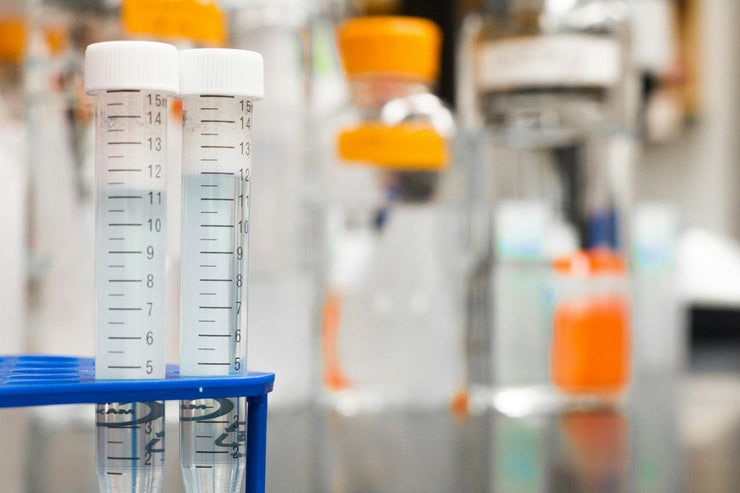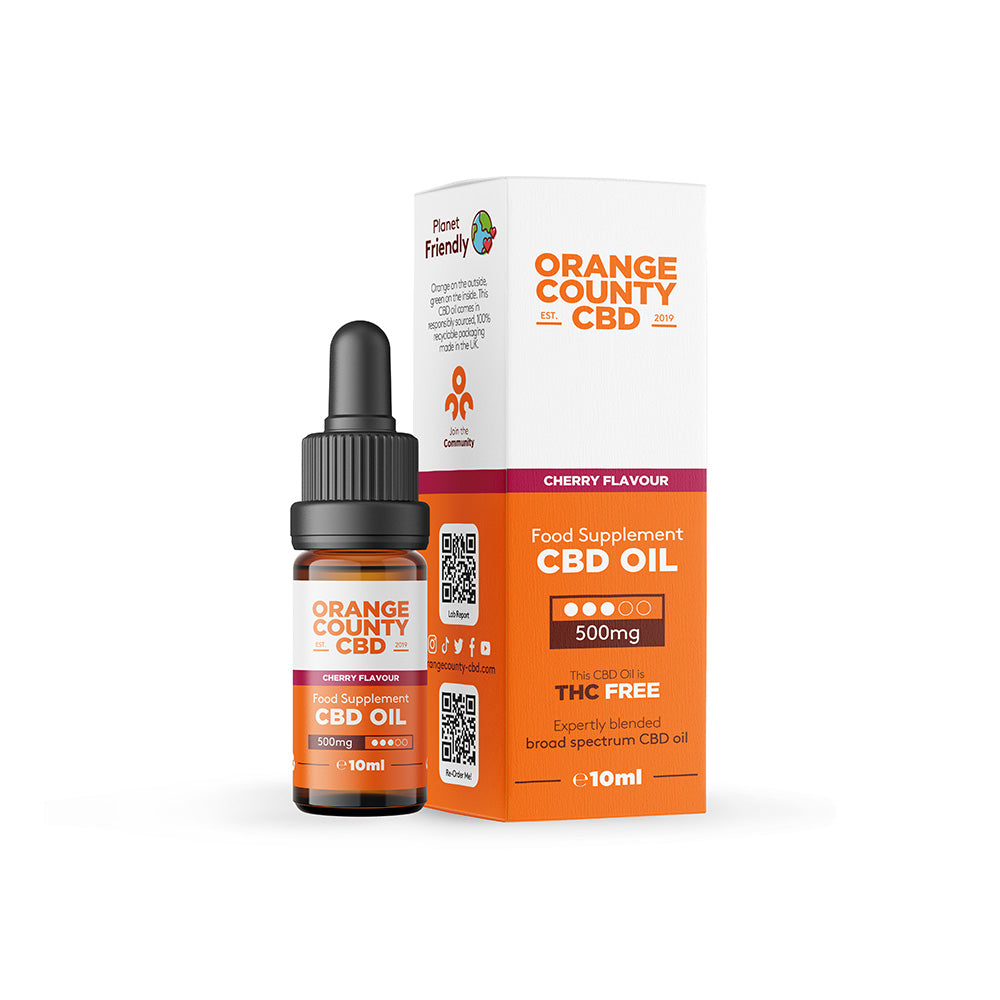Does CBD Show Up On a Drug Test?


CBD is legal in the UK and won’t usually show up on a drug test. The concern lies with THC - the psychoactive compound that drug tests are designed to detect. Some CBD products, especially full-spectrum or poorly labelled ones, may contain trace amounts of THC [2]. If those levels go above the legal UK threshold of 0.2% THC, or if the product isn’t accurately tested, there’s a small risk of returning a positive result.
If you’re worried about this, it’s best to choose a broad-spectrum CBD oil, which contains no detectable THC but still offers other beneficial plant compounds.
Table of Contents:[hide]
What Do UK Drug Tests Screen For?
In the UK, drug tests are typically designed to detect controlled substances, like THC, not CBD. The most common types of drug testing include:
-
Urine tests: Detect THC metabolites for 1 – 4 days, and sometimes longer with regular use.
-
Hair tests: Can detect THC use for up to 90 days.
-
Saliva tests: Usually detect THC for 1 – 2 days after use.
-
Blood tests: Rarely used in workplace or sports testing; THC is detectable for several hours to a couple of days.
CBD itself isn't the target - but contaminated products with THC are.

Professional boxer, Josh Taylor taking Orange County CBD broad spectrum CBD oil.
Can CBD Cause You to Fail a Drug Test?
Pure CBD won’t trigger a positive drug test. The risk comes from products that are:
-
Mislabelled
-
Full-spectrum and poorly regulated
-
Not tested by third-party labs
If you’ve used a CBD product containing the legal amount of THC (0.2%) then your drug test should be clear, but it’s still possible to test positive for THC if there's a lot in your system.
A 2017 study published in JAMA found that 21% of CBD products sold online contained THC without declaring it on the label. Some even had levels high enough to cause intoxication.
💡 Important tip: Even small traces of THC can accumulate if you use CBD daily - especially in high doses - increasing your chances of a positive test.
Types of CBD and Their THC Risk
|
Type of CBD |
Contains THC? |
Safe for Drug Tests? |
|
Full-spectrum |
Yes, up to 0.2% in UK (legal limit), but may vary |
❌ Use with caution |
|
Broad-spectrum |
No detectable THC |
✅ Safer choice |
|
CBD isolate |
100% pure CBD |
✅ Best choice |
Note: With broad-spectrum or isolate CBD, the method of consumption (like vaping, oils, or gummies) doesn’t impact THC risk - since these products are THC-free.
However, how you take CBD can affect how long it stays in your system. For example, edibles may last longer in the body than vapes or oils due to slower digestion and absorption.
How Long Can THC from CBD Products Stay in Your System?
Even though UK law allows up to 1mg of THC per product, not all brands comply. Using full-spectrum or unverified CBD products can introduce enough THC into your system to be flagged in a test - especially with regular use.
How long THC stays in your system depends on several personal and product-related factors - including dose size, frequency of use, body fat percentage, metabolism[3], and how the CBD is consumed (like oils, gummies, or capsules). If you're curious about how these factors impact retention time, especially with daily use, our guide on how long CBD stays in your system covers it in detail [1].
Since THC is fat-soluble, it can accumulate in fat tissue over time. That means someone taking a high-strength CBD oil daily might store more THC than someone who uses a gummy once a week.

How to Avoid Failing a Drug Test When Using CBD
✅ Always buy from brands that provide third-party lab results
✅ Look for THC-free certifications, like BSCG (trusted by athletes)
✅ Stick with products containing less than 1mg THC per container
✅ Choose broad-spectrum or isolate CBD
✅ Avoid shady or unregulated online shops
Think of it like food safety - if it’s going into your body, you deserve to know what’s in.
Should You Use CBD if You’re Drug Tested?
Yes - if you choose carefully. CBD itself is safe and legal, but to stay on the safe side:
-
Use broad-spectrum or isolate CBD
-
Check for trusted lab testing
-
Avoid products with unclear ingredients or THC content
If you’re an athlete, a professional facing regular drug tests, or simply want extra peace of mind, our Broad-Spectrum CBD Oil is a safe, trusted choice - and it’s only £16.99.
Research
[1] – Study: How long does a single oral dose of cannabidiol persist in plasma?
Source: https://analyticalsciencejournals.onlinelibrary.wiley.com/doi/full/10.1002/dta.3419
Summary: This study found that cannabidiol (CBD) can remain detectable in blood plasma for several days to weeks after a single oral dose, depending on the amount taken. While low doses (15 mg) cleared within a week, higher doses like 300 mg and 1500 mg were often still present after 13 and 25 days, respectively. The likelihood of detecting CBD increased with dose size and participant age. These findings highlight the need for longer washout periods in clinical trials using CBD, especially when higher doses or repeated use are involved, to avoid potential carryover effects.
[2] – Page: Labeling Accuracy of Cannabidiol Extracts Sold Online
Source: https://jamanetwork.com/journals/jama/fullarticle/2661569
Summary: This study found that many CBD products sold online contained inaccurate labelling, with significant variation in actual CBD content compared to what was advertised. Importantly, 21% of the products tested were found to contain detectable levels of THC, despite not listing it on the label. In some cases, THC levels were high enough to potentially cause intoxication, particularly in sensitive users or children. These findings highlight the importance of buying CBD from reputable brands that provide third-party lab testing to verify both CBD and THC content, ensuring product safety and compliance with legal limits.
[3] – Study: Therapeutic Efficacy of Cannabidiol (CBD): A Review of the Evidence from Clinical Trials and Human Laboratory Studies
Source: https://pmc.ncbi.nlm.nih.gov/articles/PMC7880228
Summary: This review highlights that CBD interacts with the body’s metabolism primarily through the liver. CBD is processed by enzymes in the cytochrome P450 family, which are responsible for breaking down many common medications. As a result, CBD can slow down or alter the metabolism of other drugs, increasing their concentration in the bloodstream. This interaction is especially important for people taking medications like blood thinners, epilepsy treatments, or antidepressants.
The study also notes that individual factors - such as CBD dosage, frequency of use, and the user’s own metabolism - affect how long CBD stays in the system. Regular use or higher doses can lead to CBD building up in fat tissues, potentially slowing its clearance from the body.
Sustainability

